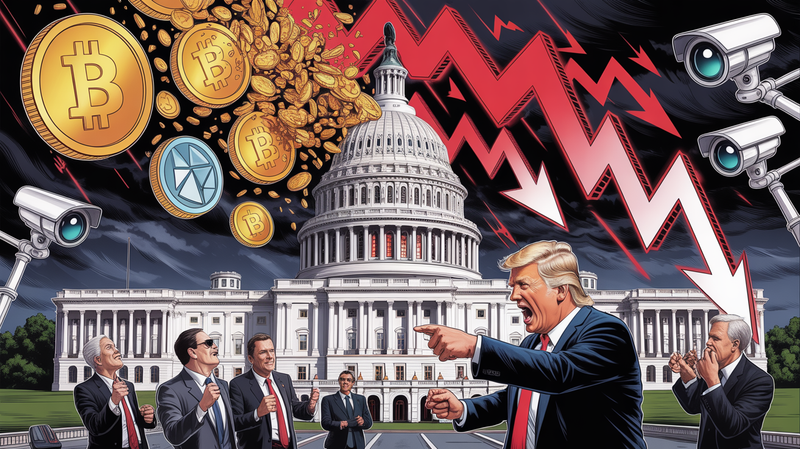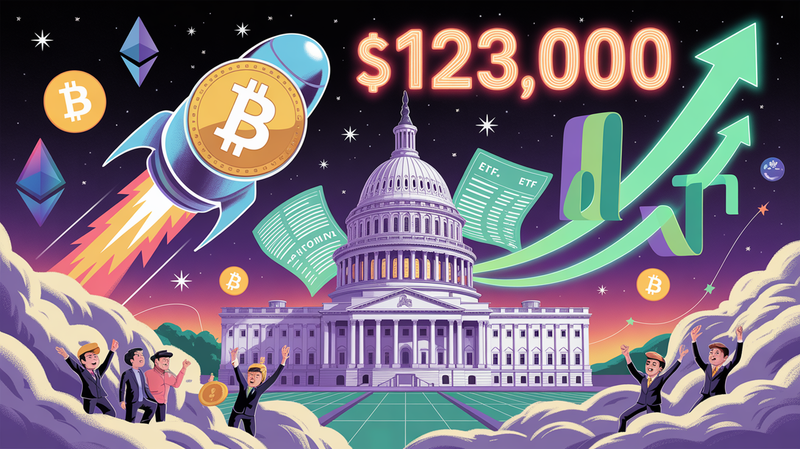The Gospel of Bitcoin: How Cryptocurrency Transcends Traditional Faith
In the world of finance and technology, few phenomena have captured the collective imagination as fervently as Bitcoin. Beyond its status as a groundbreaking digital currency and a decentralized financial system, Bitcoin has also given rise to a unique cultural and ideological movement that some have likened to a religious

In the world of finance and technology, few phenomena have captured the collective imagination as fervently as Bitcoin. Beyond its status as a groundbreaking digital currency and a decentralized financial system, Bitcoin has also given rise to a unique cultural and ideological movement that some have likened to a religious fervor. This thought-provoking concept of "Bitcoin as a religion" offers a fascinating perspective on the beliefs, practices, and values surrounding the cryptocurrency.
At its core, a religion typically encompasses a set of beliefs, rituals, and a sense of community. Similarly, Bitcoin has garnered a passionate following that believes in its transformative potential and challenges the existing financial establishment. For many Bitcoin enthusiasts, it represents more than just a technological innovation; it symbolizes a rebellion against centralized authority and a quest for individual financial sovereignty.
Like traditional religions, Bitcoin has its own sacred texts and prophets. Satoshi Nakamoto, the mysterious creator of Bitcoin, is revered as a visionary figure who introduced a revolutionary concept that has the power to reshape the global financial landscape. The Bitcoin whitepaper is seen as a sacred text, containing the foundational principles and beliefs that underpin the cryptocurrency's ideology.
Moreover, Bitcoin's rituals and practices bear resemblance to religious customs. The process of mining, where individuals dedicate their computational power to validate transactions and secure the network, is akin to an act of devotion. Bitcoin enthusiasts gather at conferences and meetups, creating a sense of community and shared purpose. These gatherings foster an environment where beliefs and ideas are exchanged, strengthening the collective faith in Bitcoin's potential.
The concept of "HODL" (Hold On for Dear Life) has also taken on a quasi-religious significance within the Bitcoin community. It signifies a steadfast commitment to holding onto Bitcoin as a long-term investment strategy, even in the face of market volatility and external skepticism. It embodies the faith that Bitcoin's value will appreciate over time, akin to a spiritual belief in a higher power's providence.
However, it is crucial to note that Bitcoin's religious undertones should not be interpreted in a literal sense. Unlike traditional religions that offer moral frameworks and guidance for personal conduct, Bitcoin does not possess an inherent ethical code. Instead, its ideology focuses on principles such as decentralization, censorship resistance, and financial freedom.
Furthermore, the idea of Bitcoin as a religion raises pertinent questions about the intersection of technology and spirituality. As society becomes increasingly reliant on digital innovations, it is not surprising to witness the emergence of new belief systems centered around technological advancements. Bitcoin's religious-like fervor highlights the profound impact technology can have on shaping our worldview and sense of identity.
In conclusion, the notion of Bitcoin as a religion provides a captivating lens through which to examine the cultural and ideological significance of this groundbreaking cryptocurrency. While it may not possess the conventional characteristics of an organized religion, Bitcoin has undeniably fostered a passionate community driven by shared beliefs, rituals, and a sense of purpose. Whether one sees Bitcoin as a transformative force or a speculative asset, its influence as a cultural phenomenon cannot be denied. As the cryptocurrency ecosystem continues to evolve, it will be intriguing to observe how Bitcoin's religious-like fervor further evolves and impacts the wider society.
Embracing the Potential: Bitcoin as a Catalyst for Positive Change
In a world of evolving financial landscapes, Bitcoin has emerged as a phenomenon that transcends traditional boundaries. It has garnered attention and fervor, akin to that of a religious movement. However, within this fascinating realm of cryptocurrencies, there are underlying positive aspects that deserve exploration.
Bitcoin and the broader cryptocurrency ecosystem offer individuals the opportunity to discover new ways of understanding and participating in the financial realm. It can promote economic freedom, increase financial inclusivity, and encourage innovation and technological advancement.
Nevertheless, it is crucial to exercise caution and remain aware of the risks associated with this evolving technology. While Bitcoin opens doors to new possibilities and excitement, one must navigate the realm with moderation and prudence, mindful of potential scams, volatility, and instability.
Ultimately, it is important to recognize that everyone has the freedom to choose their own values and beliefs. If Bitcoin provides individuals with fulfillment, opportunities, and a sense of community, let it hold meaning for them. However, let us not forget that true values lie in our relationships with others, society, and the natural world.
Therefore, regardless of how we perceive Bitcoin - whether as a religion or as a technological advancement - let us embrace open-mindedness, critical analysis, and responsible investment. Striking a balance is paramount, as we trust our own values to create a world where technology serves humanity, supporting the overall well-being and prosperity of society.




